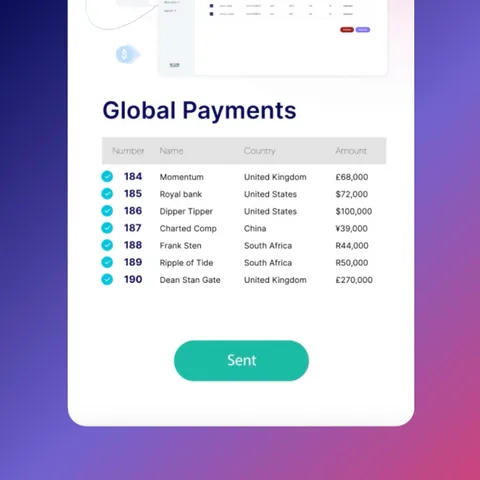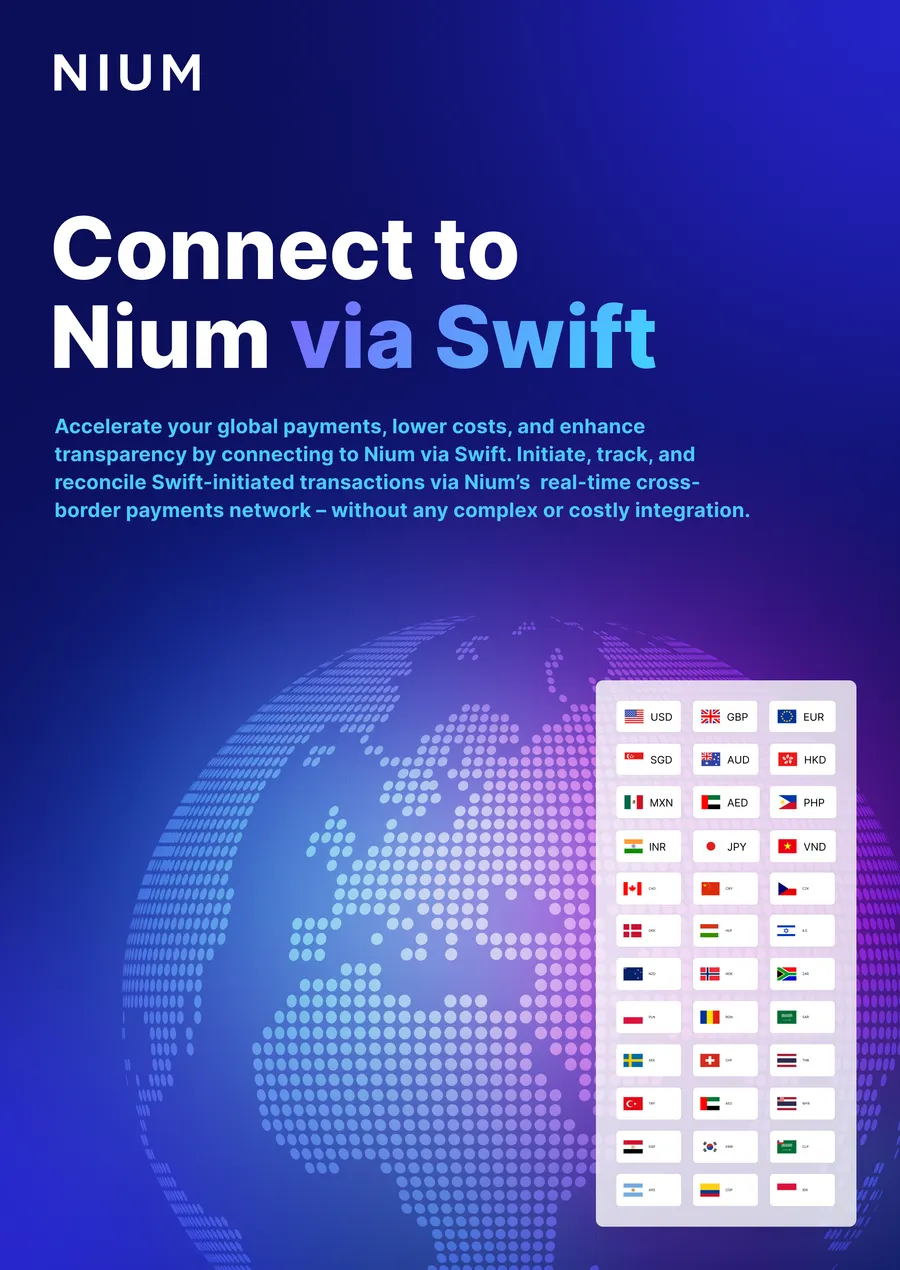Economic pressures have pushed some companies to consider global talent options, with more than two-thirds of companies (68%) in the U.S. considering outsourcing their services to emerging countries. Argentina, the Philippines, and India were the top three attractive countries to hire from globally, with outsourcing making up 10% of the Philippine economy.
Regardless of the why, the how of paying global talent has become increasingly complex. Adherence to regional regulations and cultural sensitivities are just two of many considerations – not to mention the technology that underpins it all. Reliance on traditional correspondent banking rails can add to the complexity and hamper the innovation, flexibility, and speed needed to offer the right payment experience.
Catering to companies with an increasingly globally dispersed workforce is lucrative. As of 2019, the global outsourcing market totaled $92.5 billion, posing a staggering opportunity for global payroll platforms, as companies continue the streak of global hiring, having a footprint in some of the most popular regions can increase their revenue streams substantially.
We’ll explore the key payment considerations when expanding into new corridors, specifically in the Asian-Pacific region (APAC), India, and Latin America (LATAM), and how global payroll platforms can help companies to scale quickly.
Considerations When Expanding to the Asia Pacific Region
Payroll compliance is paramount and requires intimate knowledge of local regulations. APAC and other popular regions for outsourcing offer a wellspring of opportunity but also require you to navigate a wealth of localized payroll procedures.
Supporting cross-border payroll in new corridors like the Philippines means awareness of:
- Employment Status Rules: Understanding how to classify employees versus contractors is key. In this APAC locale, you should follow the tests set forth by a Philippine Supreme Court ruling to determine whether a worker is an employee or a contractor.
- Data Privacy Laws – Understand local regulations around data collection and processing for each region where business customers are processing payroll. Violations of data protection laws like the Data Privacy Act of 2012, also known as Republic Act No. 10173 (DPA), can result in fines ranging from PhP100,000 to PhP5,000,000 (about $2,400 to $123,450). Violations may also result in imprisonment ranging from 6 months up to 7 years.
- Localization and Cultural Considerations – In the Philippines, employers are required to provide a monetary benefit to all non-managerial staff known as “13th Month Pay” before December 24th each year. Without legal exemptions, failure to pay can result in legal charges.
Considerations When Expanding to India
When expanding hiring into India, companies must consider its federal structure and know that labor laws can vary across states. Along with state-specific obligations, understanding other regional mandates is critical:
- Income tax and Tax Deduction at Source (TDS): Employers must understand income tax calculations and procedures, known as tax deduction at source (TDS), as well as state-level professional taxes levied on salaried employees that vary by state.
- Provident Fund (PF) and Employee State Insurance (ESI): Both employers and employees in India must contribute to retirement and medical funds that pay benefits to employees, known as the Employees' Provident Fund (EPF) and the Employee State Insurance (ESI) schemes, respectively.
- Currency and Exchange Rates: Employers must consider exchange rates and ensure accurate payments in Indian Rupees (INR). Fluctuating currency rates, market volatility, and managing various currencies can complicate payroll processing and cause reconciliation issues if not managed properly.
Considerations when expanding to Latin America
As businesses expand into the vibrant and dynamic LATAM region, global payroll platforms must be well-versed in the unique considerations and intricacies of managing cross-border payroll processes in this diverse country.
Ensuring compliance across every facet of laws, regulations, and cultural nuances in locations like Argentina requires awareness of:
- Collective bargaining agreements (CBAs): Many Argentinian industries are subject to CBAs negotiated between employers' associations and labor unions. These specify labor conditions, salaries, and employee benefits, with which cross-border payroll platforms must comply.
- Statutory reporting and filings: In Argentina, employers must submit regular reports and filings to various government agencies like tax authorities and social security entities. Payroll compliance means understanding the reporting requirements and deadlines and ensuring timely and accurate submissions.
- Argentine labor laws: Argentinian labor laws stipulate legal working times and outline overtime rates, maternity leave requirements, general paid leave entitlements, and minimum age. It is crucial to ensure that the client's payroll operations align with the labor laws and regulations of Argentina to avoid legal issues and penalties.
The Role of Technology and Automation in Cross-Border Payroll
Technology and automation make up the backbone of efficient cross-border payroll operations. Automation can reduce human error and the resources required to process payroll.
In choosing the right technology, global payroll platforms should consider:
- Seamless Integration – Look for systems that leverage simple APIs for easy integration with existing systems like ERPs. This can streamline expansion into new corridors while increasing operational efficiency.
- Scalability and Reliability – Choose scalable and reliable technology to support expansion into new markets.
- Secure and Compliant – Technology may simplify compliance, but it does not make it a moot point. Be sure to work with technology providers with expertise in security, local regulations, and compliance.
How Nium Helps Global Payroll Platforms
Global payroll platforms must discern the subtleties of various regions. Managing payroll for employees or contractors in India may look different than managing payroll in LATAM, and you want to be sure that your B2B cross-border payments infrastructure can properly accommodate both scenarios.
Nium has deep experience across a global array of regional corridors. As the market leader in mission-critical payments, Nium offers competitive foreign exchange rates, ensures built-in compliance, enables real-time payments, provides robust security offerings, eliminates deductions, and offers extensive market coverage. This entails ensuring transaction transparency, including status updates, validations, access to data, reporting, and notifications; integration with existing systems and networks; and global service to ensure the same experience across local time zones for the entire workforce where everyone gets paid on time in the way that they want.
Careful planning paired with strategic execution will allow global payroll processors to successfully expand into new markets – and ensure they have the necessary capabilities to support clients as they grow. Partnering with an experienced B2B cross-border payments infrastructure can enable seamless expansion while ensuring you don’t run afoul of local laws and regulations.
To learn more about how you can enjoy the value of a truly modern payment system, download Nium’s latest ebook: Payroll Goes Global: Optimizing Workforce Payments for International Businesses, or contact us here.






.png@webp)



.png@webp)



